
Code: 02180911
Morris Hepatomas
by Harold Morris
In 1960, Dr. Van R. Potter and Dr. Henry Pitot (at McCardle Laboratory in Madison, Wisconsin), Dr. Tetsuo Ono (then at McCardle Laboratory and now at the Japanese Foundation for Cancer Research in Tokyo, Japan) and Dr. Harold P. M ... more
- Language:
 English
English - Binding: Paperback
- Number of pages: 775
Publisher: Springer-Verlag New York Inc., 2012
- More about this

61.51 €

Low in stock at our supplier
Shipping in 13 - 16 days
Potřebujete více kusů?Máte-li zájem o více kusů, prověřte, prosím, nejprve dostupnost titulu na naši zákaznické podpoře.
Add to wishlist
You might also like
-
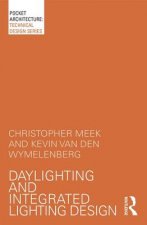
Daylighting and Integrated Lighting Design
48.58 € -
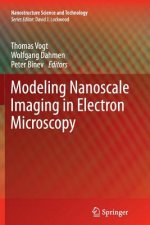
Modeling Nanoscale Imaging in Electron Microscopy
121.21 € -

homerische Theologie
49.89 € -1 % -

Züchtungslehre
14.64 € -9 % -

Freelance It
72.32 €
Give this book as a present today
- Order book and choose Gift Order.
- We will send you book gift voucher at once. You can give it out to anyone.
- Book will be send to donee, nothing more to care about.
More about Morris Hepatomas
You get 154 loyalty points
 Book synopsis
Book synopsis
In 1960, Dr. Van R. Potter and Dr. Henry Pitot (at McCardle Laboratory in Madison, Wisconsin), Dr. Tetsuo Ono (then at McCardle Laboratory and now at the Japanese Foundation for Cancer Research in Tokyo, Japan) and Dr. Harold P. Morris (then at the National Cancer Institute and now at Howard University, Washington, D. C. ) decided that an experimental cancer model would be an invaluable tool to examine neoplastic changes in cells. Since they were study ing the various highly specific metabolic processes which are unique to liver tissues, they determined that a transplantable liver cancer model would be the ideal system to work with. This system would provide for comparison of normal liver tissue of the non-tumor bear ing animal, the tumor bearing animal's (host) liver and the liver cancer. Dr. Morris undertook a series of rat studies employing several chemicals known to cause liver cancer. Soon the first Morris hepatomas (#3683, 3924A, 5123) were being studied by several labs. During the next 18 years, Dr. Morris developed and transplanted numerous strains of hepatomas of which no two were identical. These tumors ranged from the very slowly-growing, highly differentiated cancer tissues, e. g. , 96l8A which is a diploid tumor containing gly cogen and a "nearly normal" complement of enzymes, to a large group of rapidly-growing, poorly differentiated cancer tissues, e. g.
 Book details
Book details
Book category Books in English Medicine Clinical & internal medicine
61.51 €
- Full title: Morris Hepatomas
- Subtitle: Mechanisms of Regulation
- Author: Harold Morris
- Language:
 English
English - Binding: Paperback
- Number of pages: 775
- EAN: 9781461588542
- ISBN: 1461588545
- ID: 02180911
- Publisher: Springer-Verlag New York Inc.
- Weight: 1473 g
- Dimensions: 254 × 178 × 42 mm
- Date of publishing: 18. April 2012
Trending among others
-
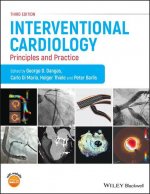
Interventional Cardiology: Principles and Practice , Third Edition
345.07 € -
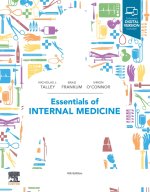
Essentials of Internal Medicine
95.75 € -1 % -

Nutrition in Clinical Practice
104.44 € -

Maudsley Prescribing Guidelines in Psychiatry, 14th Edition
76.16 € -

MRI in Practice, 5th Edition
51.51 € -7 % -
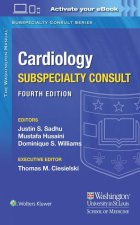
Washington Manual Cardiology Subspecialty Consult
62.22 € -4 % -
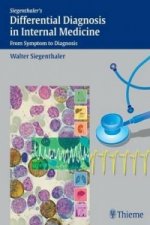
Differential Diagnosis in Internal Medicine
73.83 € -

Top 100 Drugs
22.92 € -8 % -

Essentials of Nutrition in Medicine and Healthcare
45.35 € -2 % -
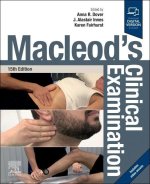
Macleod's Clinical Examination
55.55 € -1 % -

Impasse and Interpretation
62.42 € -

Users' Guides to the Medical Literature: A Manual for Evidence-Based Clinical Practice, 3E
108.79 € -
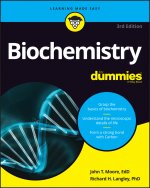
Biochemistry For Dummies, 3rd Edition
21.91 € -35 % -
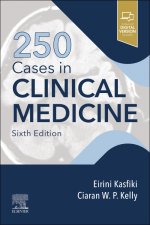
250 Cases in Clinical Medicine
59.19 € -
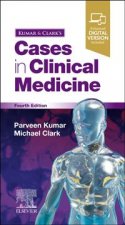
Kumar & Clark's Cases in Clinical Medicine
35.85 € -11 % -

Why Stomach Acid Is Good for You
14.33 € -15 % -

Anatomy Essentials For Dummies
9.49 € -16 % -

Medical Secrets
45.75 € -14 % -
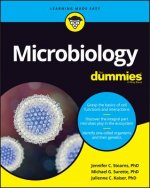
Microbiology For Dummies
16.66 € -35 % -

Fibromyalgia Syndrome
106.56 € -4 % -

Essential Manual of 24 Hour Blood Pressure Management, - From Morning to Nocturnal Hypertension 2nd Edition
72.72 € -
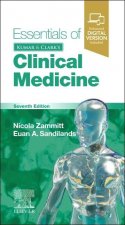
Essentials of Kumar and Clark's Clinical Medicine
44.03 € -1 % -

Urologic Oncology
122.52 € -4 % -
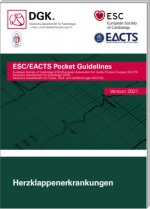
Herzklappenerkrankungen
6.05 € -

Advances in Diagnosis and Management of Ovarian Cancer
117.17 € -4 % -
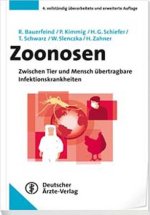
Zoonosen
84.24 € -

Oxford Handbook of Clinical Medicine
101.71 € -
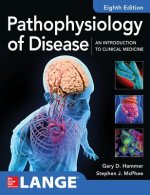
Pathophysiology of Disease: An Introduction to Clinical Medicine 8E
123.53 € -
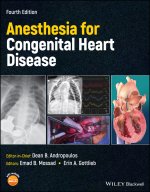
Anesthesia for Congenital Heart Disease 4e
283.65 € -
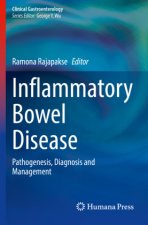
Inflammatory Bowel Disease
90.10 € -

Evidence-Based Physical Diagnosis
66.66 € -9 % -
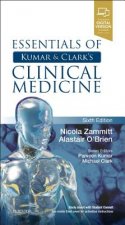
Essentials of Kumar and Clark's Clinical Medicine
35.04 € -3 % -

Blood Cells: A Practical Guide, Sixth Edition
139.70 € -7 % -

Maudsley Guidelines on Advanced Prescribing in Psychosis
29.89 € -

How to Read a Paper - The Basics of Evidence-based Medicine and Healthcare, 6th Edition
48.18 € -1 % -
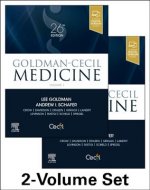
Goldman-Cecil Medicine International Edition, 2-Volume Set
113.43 € -1 % -
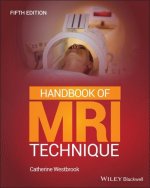
Handbook of MRI Technique, 5th Edition
64.24 € -8 % -
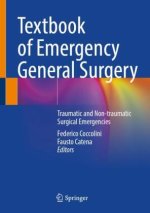
Textbook of Emergency General Surgery
191.32 € -4 % -

Internal Medicine On Call
86.06 € -

Haematology - From the Image to the Diagnosis
118.08 € -3 % -
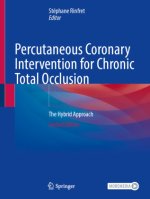
Percutaneous Coronary Intervention for Chronic Total Occlusion
170.10 € -4 % -

Infectious Diseases - A Geographic Guide 2e
121.51 € -
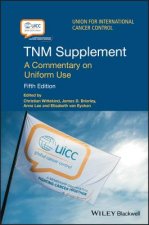
TNM Supplement
54.54 € -

Internal Medicine
60.30 € -

Washington Manual of Medical Therapeutics Spiral
85.35 € -10 % -

Oxford Textbook of Medicine
746.92 € -
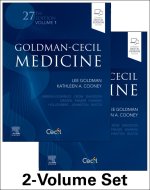
Goldman-Cecil Medicine, 2-Volume Set
210.61 € -4 % -
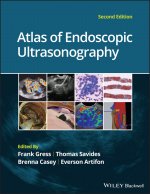
Atlas of Endoscopic Ultrasonography 2e
197.18 € -7 % -

It's All in Your Head
20.40 € -18 %
Collection points Bratislava a 2642 dalších
Copyright ©2008-24 najlacnejsie-knihy.sk All rights reservedPrivacyCookies


 15549 collection points
15549 collection points Delivery 2.99 €
Delivery 2.99 € 02/210 210 99 (8-15.30h)
02/210 210 99 (8-15.30h)